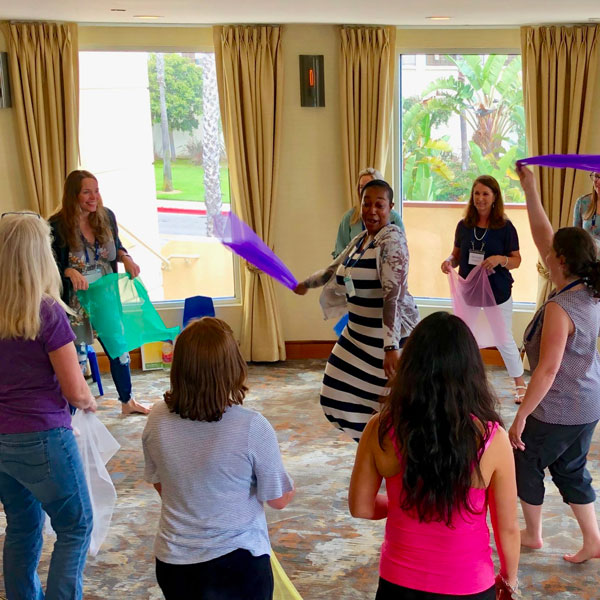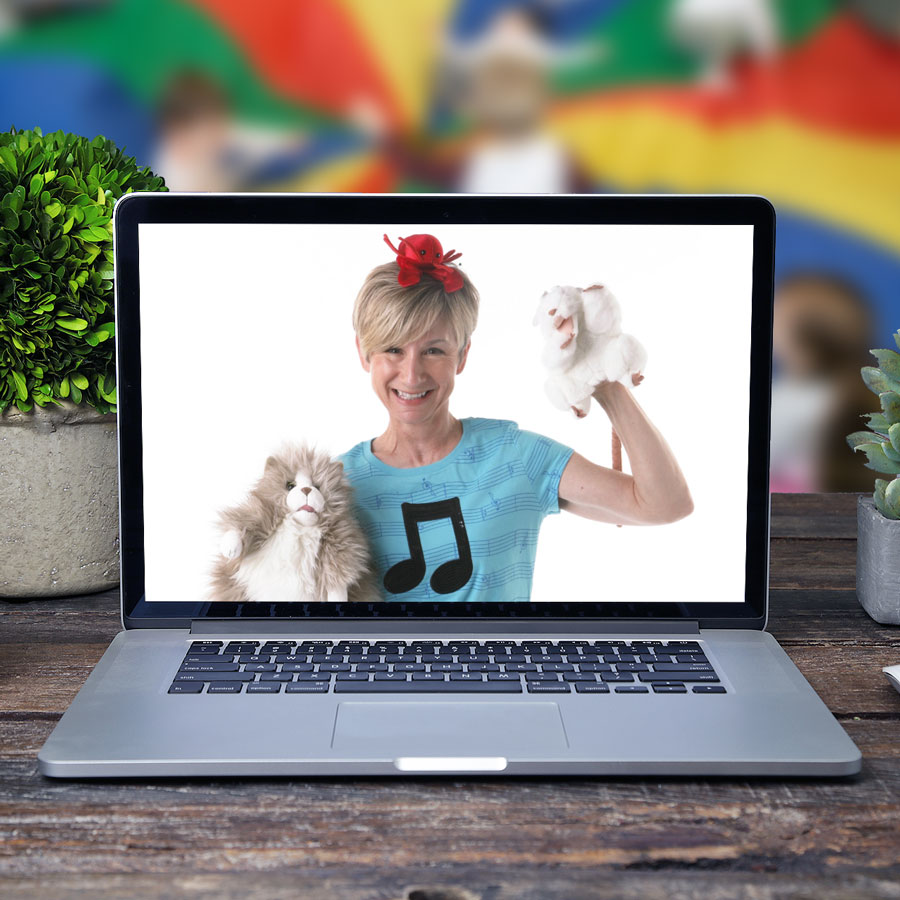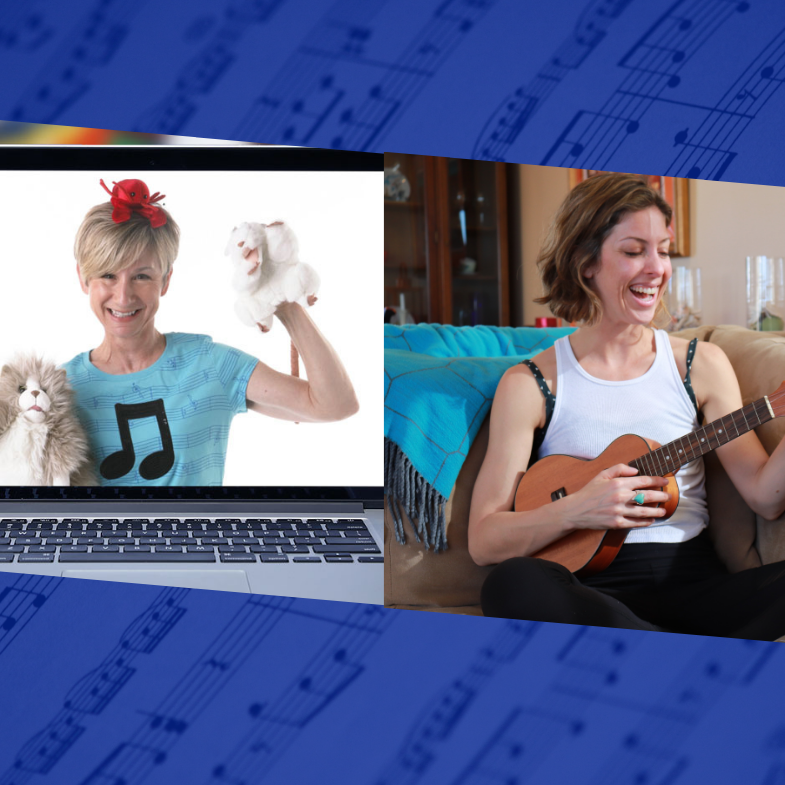Music Teacher Training
Early Childhood & Elementary Music Teacher Training
Inspirational. Interactive. Dynamic and Just Plain Fun.
Live Teacher Training
With Internationally Renowned Music Educator Lynn Kleiner
June 26-28, 2024
Redondo Beach, CA
Tuition: $599 $499
(School districts with multiple teachers contact us for special pricing)
Live Teacher Training
With Internationally Renowned Music Educator Lynn Kleiner
June 13-15, 2024
SMU, Dallas, TX
Click the link below to register through SMU!
Online Teacher Training Anytime, Anywhere
Tuition: $499 $399
Watch training videos on your own time, at your own pace! (School districts with multiple teachers contact us for special pricing)
Have questions or not sure if it’s right for you? Just schedule a free consultation and we’ll be happy to help. You can also view the FAQ at the bottom of the page.
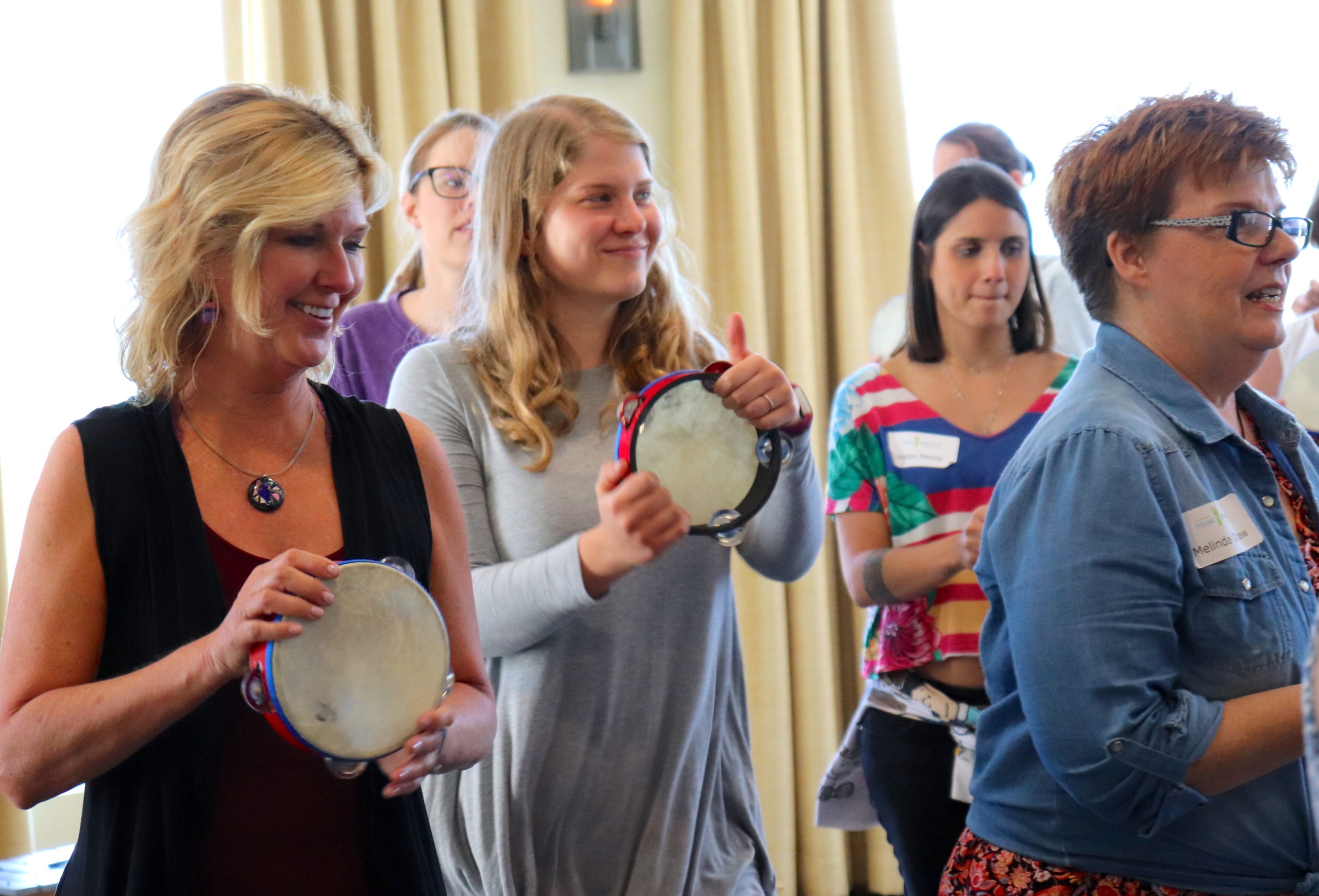
Our music teacher training is flexible, engaging, and educational.
Our exciting teacher training course is a beautiful blend of the Orff Schulwerk approach and Music Rhapsody’s own original content.
This training event covers different aspects of a child’s early musical development from babies through age 8, including Orff and Recorder. Lynn will impart decades of research findings and how they relate to teaching music, and teachers will participate in activities and watch videos of Lynn and her students performing musical activities.
Onsite training is the best way to immerse yourself in our multi-sensory experience. You’ll love singing, moving, improvising, and learning new, playful teaching tools with other dedicated educators throughout this 32-hour intensive course.
We offer something unique and challenging for every age and developmental level from infants through elementary, with songs, stories, puppets, percussion and more.
Teachers receive a certificate of completion for the course, reflecting 32 professional development hours in music education. The course has been offered through many institutions for over 30 years and meets CEU requirements for school districts and music teacher license renewals.
We are happy to provide details on the course if additional information is needed to meet course requirements for CEUs.
View Teacher Training FAQs below.
Join us online anytime!
If our live dates don’t work for you, Online Teacher Training is always an option!
Train on your own schedule with Lynn and Coach Ann, with all the same benefits and curriculum of live music teacher training. You’ll access videos of Lynn’s complete Live Training, along with supplemental videos and materials like ukulele tutorials, sopranino recorder lessons, full videos from Lynn’s real-life classes, complete lesson plans and more. There will be quick quizzes to make sure you have grasped the important points. A preliminary online interview will determine readiness for the online training, and upon the completion of the training, a series of follow-up mentoring sessions are provided.
Have questions or not sure if it’s right for you? Just schedule a free consultation and we’ll be happy to help.
There are many school districts that pay for their teachers’ professional development and membership.
Contact info@musicrhapsody.com if you have any questions.
What You’ll Learn In Training
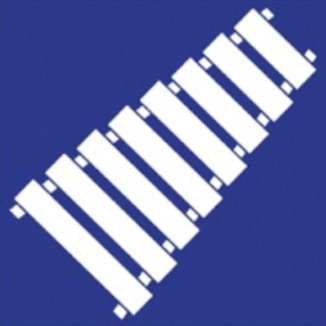
ORFF
Discover the How’s and Why’s of using pitched and unpitched Orff/percussion instruments, and what’s best for each stage of a child’s development.
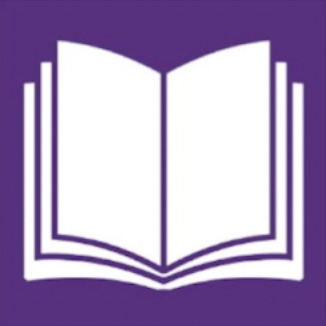
STORIES
Find out how they enhance musicality and creativity. Children love them, parents love them and you will too!
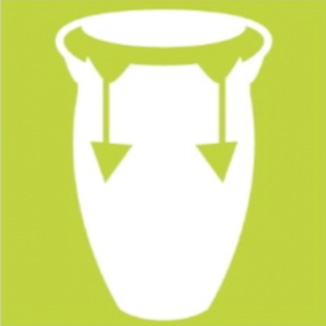
THE GATHERING DRUM
The list of activities and benefits of this special instrument are as big as the gigantic drum itself. Made by REMO, this quality instrument sounds as good as it looks and is built to last.
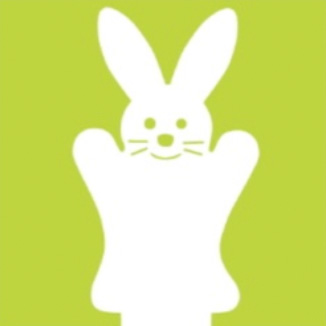
PUPPETS
Along with parachutes, scarves, props, felts, and visuals – learn how colorful fun and imaginative props increase participation and learning.
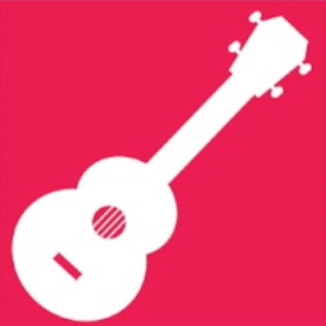
UKULELE
This easy and portable little instrument makes the classroom a happier place for the teacher, for the students, and for the parents.
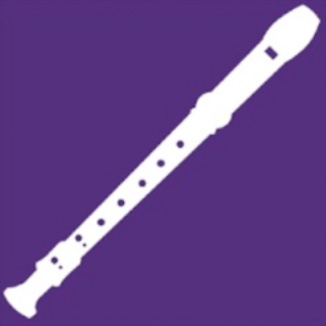
RECORDER
Sopranino Recorder for you, soprano recorder for your students. Don’t think you can play recorder? It’s E-C!
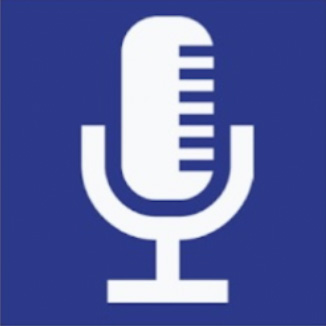
SINGING
Matching pitch, singing in tune, With and without others. A sequence of activities for success, how to make solo singing fun for the whole class not just the soloist.
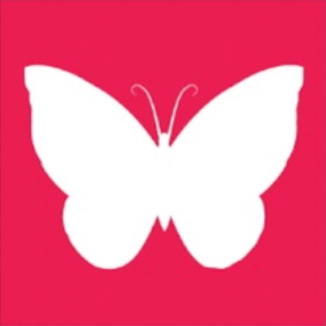
TRANSITIONS
Use songs and playful signals to make the classroom experience as musical and magical as possible with less talk and more play!
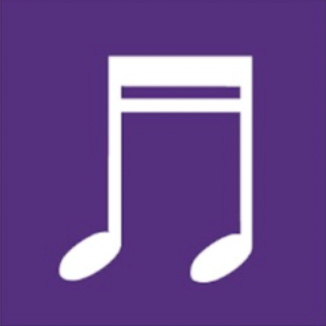
SONGS
There are songs, rhymes, dances and stories for every weather, theme, tonality and age group. More than enough to make music all year long!
What You Receive With Training
Detailed Training Handbook with Over 100 Pages of Valuable Resources For 8 Age Groups
Sampling of Detailed Lesson Plans & Visuals For Each Age Group
Videos of Lessons Taught By Lynn Kleiner for Each Age Group
Techniques on Using Puppets & Props
One-on-One Coaching
How to Introduce Orff Instruments and Use Them Successfully
Tips for Teachers and Educational Tips for Parents
Lessons on Playing Ukulele, Soprano & Sopranino Recorders
Tips & Activities for Using the Gathering Drum
Lyric Sheets & Notation Pages
Lessons at-a-Glance Classroom Aid
Classroom Policies & Classroom Set-Up Supporting Documents
Once you are registered for training, you are eligible for Music Rhapsody Membership. See our Online Training/Membership Package!
Teachers receive a certificate of completion for the course, reflecting 32 professional development hours in music education. The course has been offered through many institutions for over 30 years and meets CEU requirements for school districts and music teacher license renewals.
We are happy to provide details on the course if additional information is needed to meet course requirements for CEUs.
Teacher Training Frequently Asked Questions
Why Music Rhapsody?
- Lynn’s program is not a “one size fits all” program since each level (infants through elementary) is developmentally specific and generally age specific, so there is something unique and challenging every step of the way.
- A high level of musicality is presented in the lessons, such as the pitch matching, music vocabulary, discriminate listening, and singing games. Singing specific intervals and phrases for pitch matching and singing in tune are part of the game-like activities, and the level of musicianship in the lessons are very developmentally specific; e.g. the 4 year old singing games would not in the toddler lessons.
- Some of the same songs and pieces of music return in lessons for several weeks and from year to year, introducing a new level of challenge, new vocabulary and learning objectives – repetition with variety! This results in the children “owning” the songs and being able to sing them independently.
- The teachers and families love the live music making with the student’s own high quality instrument kit which they bring from home each week and use all year long in class. This means the music making continues in the car, at home, and everywhere they want to take it!
- Parents are encouraged to be music makers by incorporating ukulele as well as other easy instruments for them to play with and for their child. If the child sees that their parents value music, they will be life-long music appreciators.
- The Music Rhapsody program uses the Orff instruments like glockenspiels, xylophones, and percussion instruments, another reason why it has to be developmentally appropriate (babies would be putting bars and mallets in their mouth!) and why its easy to continue to challenge the timing and coordination of the children as they have more experience.
- The curriculum also includes a broad range of music, such as piano and orchestral (classical) music, world music, traditional folk dance music and folk songs, and jazz.
- Although the five groups are organized into developmentally appropriate curricula, teachers can mix, match, and adapt the lesson plans to fit their program’s needs.
What are the benefits of early-childhood music education?
- Gives the child a head start and serves as an important link to future success and future music lessons.
- Enhances brain development through proven, positive effects of music.
- Develops physical motor skills through movement and playing of music instruments.
- Provides a dramatic impact on language development and improving vocal and speech development through singing.
- Develops social skills and cooperation through participation in group dancing and musical games.
- Use of timing activities develops coordination, body awareness and spatial concepts.
- Use of repeating patterns and counting beats develops math and literacy skills.
- Improved listening and concentration skills.
- Increase of self-esteem.
- Better quality of life!
We love what we know! A child immersed in music and participating in regular music classes will always love music. In Music Rhapsody, the children learn to keep the beat, match pitch, be creative and self-expressed, improvise, accompany and participate in group music-making. All of these activities prepare them for music lessons and increase the likelihood of having music as a lifelong companion.
A child engaged in a Music Rhapsody program has a unique opportunity to continue their journey quite naturally into other musical avenues. Piano, orchestral, jazz, and world music are intentionally and strategically woven into the Music Rhapsody curriculum from the start. The children growing in the Music Rhapsody programs will hear and interact with a variety of different types of tonalities, keys, time signatures, tempos, and styles. The integration of those pieces from the earliest stages gives your child a huge advantage in any music or dance lessons.
What are the age groups discussed in the training?
We have programs for five distinct age groups:
- Babies Make Music (Birth to Walking)
- Toddlers Make Music (Ages One and Two)
- Kids Make Music (Ages Two and Three)
- Big Kids Make Music (Ages Three and Four)
- Young Musicians Make Music (Ages Four and Five)
These are the organized age groups for the Music Rhapsody studio program, but they can be mixed, matched, and adapted to fit your classroom needs!
Can I use the training for my CEUs? What does completing the training and receiving a certificate allow me to do?
The certificate means different things depending on your local requirements, and what you are interested in teaching.
Each area of the United States, and each country has its own requirements for teaching music in public schools. Completing the training and receiving the Music Rhapsody Certificate certifies you to teach the Music Rhapsody curriculum for as long as you are a Music Rhapsody Member. It also provides a wide variety of knowledge and training in teaching early childhood music to students in a studio, preschool or elementary school setting.
In the United States, this would be all you would need to teach in a music studio setting or in a preschool. Public elementary schools would have additional requirements, which vary according to the location. The Music Rhapsody training and certificate qualify as 32 professional development hours or continuing education units (CEUs) for many of our public schools, again this varies depending on the location. We are happy to provide details on the course if additional information is needed to meet course requirements for CEUs.
What materials do I need for training?
You’ll receive a 100+ page teacher training manual that will be referenced throughout the training. A soprano recorder, sopranino recorder, and ukulele are also required, but can be purchased at a discount in our shop. For online training, a large puppet, Kids Make Music glockenspiel, and small percussion instruments are also highly recommended. These can also be purchased in our shop at a discount.
Do I need a musical background to complete the training?
No! You do not need a background in music to complete the training. Many teachers without music education backgrounds at daycare centers and preschools implement the Music Rhapsody curriculum into their school. However, if you will be teaching elementary age students, knowledge of basic music theory is recommended. Music Rhapsody training does not cover basic music theory. This information is readily available on YouTube, as well as on many other websites, and can be accessed for free. A Google search for “How to Read Music” or “Simple Music Theory” will bring up many, many options for videos to watch and websites to look at.
I know online training is done at your own pace but what is the average time it takes?
Teachers usually take about 1-2 months to finish. If you need more time, let us know. We know teachers are the busiest people around so we want to be flexible!
I've already completed online training. Should I come to your live training?
Absolutely! Onsite training is the best way to immerse yourself in our multi-sensory experience. You’ll love singing, moving, improvising, and learning new, playful teaching tools with other dedicated educators. Also, many teachers return multiple times to our live trainings as there is so much valuable knowledge they take away from training each time. Plus, you’ll qualify as a returning teacher, so you can attend at half price!
Is there a student discount for the teacher training course?
YES! Students and recent graduates can come to our live teacher training course in Redondo Beach, CA for half price! Just select “Student Training Tuition” when checking out and let us know which school you attend or have recently graduated from.
What is the difference between Music Rhapsody and Simply Music?
Simply Music is the largest playing-based music education institution in the world, founded and directed by Neil Moore. Music Rhapsody and Simply Music (Piano) programs offer music education from a high quality, sequential, play-based approach, with the belief that each of us is deeply, profoundly musical. They both agree that, just as a baby naturally learns skills like speaking before it learns to read and spell, we can learn music by harnessing our inbuilt, natural gifts.
That is why we see a natural and cohesive transition from the Music Rhapsody early childhood music program into Simply Music’s Piano program. This progression is one that many students in Lynn’s local studio make, however you are free to use the Music Rhapsody curriculum however you choose! Each program is completely independent of the other and training and registration for each program is also separate.
